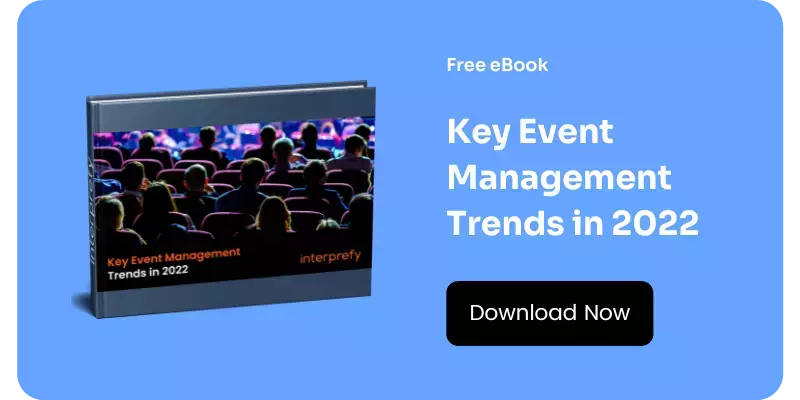Everywhere you look, there is change across the events industry. Against a backdrop of technological disruption, a shift in the dynamics that define the relationships between brands, agencies and consumers is taking place. It can be overwhelming to navigate through this change and to identify what conference delegates find valuable, what is just hype, and what you now need to make an event successful.
But there’s no need to worry.
In this blog we identify four key tips to show how to make an event successful.
1. Identify which technologies save time and admin.
We’re just back from International Confex in London and were astonished to see just how many event organization apps are on the market. While there are plenty of innovative ideas, the reality of using apps that have to be integrated, populated and rolled-out for each event can be time consuming and tiresome for both organizers and end users.
However, the right technology does need to be embraced. We know that delegates – and particularly younger attendees – not only feel more comfortable using technology, but they increasingly expect it. So, this is a critical consideration when looking at how to make an event successful.
When identifying which technologies to use for your event, ask yourself the following questions:
What is the central goal of my event and how can technology help me attain it? What are the expectations of attendees?
Look at the demographics of your attendees, what are their interests? Are there any cultural considerations? Do they have the necessary tools in place to effectively navigate the venue and make connections with speakers? Moreover, does the technology you’re considering using reduce admin, save costs, improve the event layout or enhance the user experience? If the answer is yes to one or more of these criteria, it’s worth considering.
2. Your event should flow well and remain succinct
Technology has facilitated the rapid exchange of ideas. We’re able to obtain information in real-time and on-tap via our smart devices. One of the consequences is that consumers – and therefore event delegates – want to get straight to the point. And quickly. At the same time, the way in which we receive information and engage with others has changed. We’re used to obtaining data from multiple sources in a less structured way than we might have before the digital age. Consider how you might reflect this in your event. What elements of your event are unnecessary? Get rid of them. How might you convey information in a meaningful way that encourages participants to interact?
3. Personalization is key
When looking how to make an event successful, personalization has become the order of the day. It’s no longer good enough to take a ‘one-size-fits-all’ approach. Because companies have a much better insight into consumer behaviour, today’s consumers take a personalized approach for granted. Work your way backwards by getting to know your audience. You can do this by drawing up some persona profiles to establish the unique interests and expectations of your delegates. Are their needs catered to? How can you ensure they will feel comfortable in the environment of your event? By asking such questions, you can take your event to the next level.
4. Be aware of how international your delegates are
In 2016 - 2017 a study in Germany revealed an 18% rise in international participants and over 3 million events hosted. Germany is not alone. This is a global trend. And yet, the industry has been slow to respond. We see that all too often, international events are offered in a single language. This discourages engagement and is off-putting for speakers and delegates alike who, in today’s digital era, expect a personalized and technology-enhanced response to these challenges. Interprefy’s remote simultaneous platform removed administration and slashes costs for event organizers, while vastly improving the user experience.
Interprefy has revolutionized interpreting. Its powerful cloud-based platform can provide remote simultaneous interpreting for one-to-one meetings, round tables, corporate events and large-scale conferences, in as many languages as required. The user-friendly platform allows interpreters to work remotely and participants to use their smartphones as receivers by downloading the dedicated app. Because interpreters need not travel and no AV equipment and interpretation booths are needed on-site, cost savings compared to conventional interpreting technology are substantial.
Interprefy has worked closely with event organisers across the world at some of the largest trade shows and conferences to supply remote simultaneous interpreting in numerous languages. Users can appoint their own interpreters, use an agency or alternatively they can gain access to some of the best language specialists in the world as part of Interprefy’s own language service.





.webp?width=468&quality=high)





 More download links
More download links



